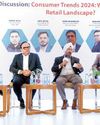FEWER VOTARIES OF PSEUDO- SCIENCE WILL HELP INDIA OCCUPY ITS RIGHTFUL PLACE AT THE HIGH TABLE OF GLOBAL SCIENCE

WHEN THE PIONEERING universities of Europe – Oxford, Cambridge, Bologna, Heidelberg and the Sorbonne – were founded around the 1200s, their mission was ecclesiastical. Religious teaching dominated learning. Science had little place in their curricula.
In England, Oxford initially taught courses in Latin. English hadn’t developed as a coherent separate language. Over the next three centuries, it grew out of Latin and French but at heart remained Germanic. Chaucer’s The Canterbury Tales, written during 1387- 1400, is in barely recognisable “Middle English”. Two centuries later, in the late-1500s, when William Shakespeare began writing plays, English had finally acquired form and content, still replete though with words from Middle English.
The scientific revolution in the 1600s laid the foundation for the industrial revolution a century later. For the next 250 years, the West dominated science and industry, helped by rapacious colonialism and the brutal slave trade from Africa to the new American colonies. The tide began to turn in the 2000s. China and Japan led a wave of Asian nations using technology to leapfrog over several eras of the industrial revolution and create modern societies.
In 2017, the United States still led the world in the number of patents filed. According to the World Intellectual Property Organisation, the US filed 29,84,825 patents in 2017. But the big revelation was the number of patents filed by China – 20,85,367, overtaking Japan (20,13,685 patents) to take second place worldwide. India was way behind with just 60,777 patents filed.
A key reason for India lagging behind is bureaucracy. It takes 1,560 days for a patent in India to be granted from the time it is applied for. In Poland it takes just three days. In Sri Lanka it takes 15 days. Even the Honduras takes only 30 days.
Denne historien er fra January 19, 2019-utgaven av Businessworld.
Start din 7-dagers gratis prøveperiode på Magzter GOLD for å få tilgang til tusenvis av utvalgte premiumhistorier og 9000+ magasiner og aviser.
Allerede abonnent ? Logg på
Denne historien er fra January 19, 2019-utgaven av Businessworld.
Start din 7-dagers gratis prøveperiode på Magzter GOLD for å få tilgang til tusenvis av utvalgte premiumhistorier og 9000+ magasiner og aviser.
Allerede abonnent? Logg på

Technology, AI Driving Warehousing Sustainability
Anshul Singhal on how Welspun One is rapidly transforming Grade-A logistics and industrial parks across India, offering integrated fund development and asset management for large-scale warehousing solutions

DECODING RETAIL'S NEXT FRONTIER
As brands pivot towards omnichannel ecosystems and startups challenge legacy frameworks, the focus sharpens on experiential retail, sustainability and data-driven personalisation.

SORORITY OF WOMEN OF METTLE
Awinter afternoon in mid-December found quite a crowd at the Oxford Book Store on Connaught Place, as bibliophiles congregated at a corner to listen to three women authors, diverse in their passions, but drawn together by an urge to tell their story.

THE LEGACY OF THE AMARNATHS
IN NOVEMBER 2017 the management committee of the Delhi Cricket Association named the eastern stand of the Feroze Shah Kotla ground the Mohinder Amarnath stand.

PUTTING THE POWER IN THE POWERHOUSE
The Asus ExpertBook P5 is powered by an 8-core 8-thread Intel Core Ultra 7 Series 2 processor that clocks a maximum speed of 4.8 GHz, but it does not have hyperthreading. It is light weight, with a smooth glass touch pad. The laptop almost has all the I/O ports you could possibly need in a business laptop, making it an extremely lucrative option for professional computing, says

"We must be aware of our energy and water consumption"
BW Businessworld caught up with actor, philanthropist, and climate warrior BHUMI PEDNEKAR to chat about climate change and more.

"Cooking is a passport to the world"
In conversation with renowned CHEF MANJIT GILL, Advisor at Kikkoman India and President, Indian Federation of Culinary Associations (IFCA). As the former Corporate Chef of ITC hotels, Chef Gill has helped shape iconic restaurants, such as the Bukhara, Dum Pukht, and Dakshin. He has had the privilege of serving former American Presidents Barack Obama, Bill Clinton, George Bush, and the French, Canadian, British and German premiers. In 1992, Chef Gill had the opportunity of being invited to cook for Prince Charles and Lady Diana, at the Palace of the Maharaja of Jaipur. He was awarded the Lifetime Achievement Award from the Ministry of Tourism in 2007.

Strengthening Middle Management for Organisational Resilience
WHAT HOLDS AN organisation together in chaos? Is it visionary leadership, cuttingedge strategies, or robust technology?

The Retail Trailblazers
A look at companies that are making a positive impact on India's growing retail sector with their future fit business and marketing strategies.

Driving Conscious Consumerism
VIDIT JAIN, Co-founder of Kindlife, is leading the charge in revolutionising the intersection of technology and conscious consumerism.